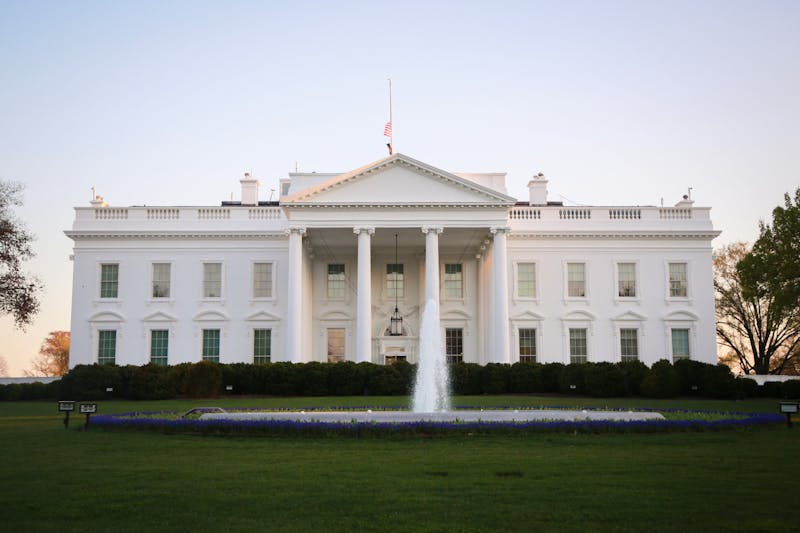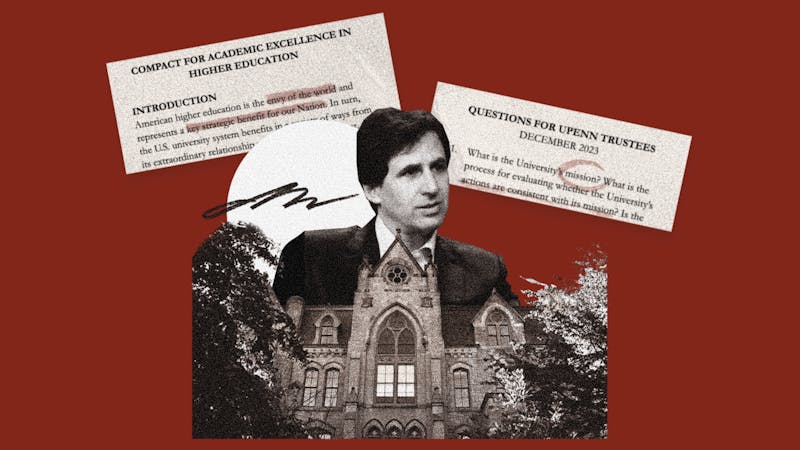A few weeks ago, the Penn Democrats had Congressman and Senatorial Candidate Joe Sestak come to campus for a town hall. Eager for a look at the man who might well be representing me in the Senate next year, I attended, ready for some hard hitting, substantive questions. And indeed, I got to hear a few that were well balanced and clearly articulated.
But I also heard one man who insisted, quite enthusiastically, that he was being assailed by the FBI, one 9/11 “Truther” who wanted Sestak’s opinion about the evidence of military nano-explosives and one questioner, who, following a lengthy dissertation on the history of hemp in America and its various international incarnations, asked if Sestak was pro-weed.
Penn Dems Vice President and Wharton junior Elizabeth Celata took these remarks with a good deal of stoicism, saying of the various disturbances “I thought they were kind of amusing.” I, on the other hand, stormed home, ready to blast off a column about the damn “Truthers,” the bloody hippies and all manner of disruptive folk who turned this and many other town halls over the summer into a morass of disorder and partisanship. It was only after a little investigation that I realized what I witnessed that night was in fact all that is good in American politics — a counter example to the distorted political landscape that Penn students need to be wary of.
My change of heart can be credited to Political Science professor Jeff Green. When I entered his office, bemoaning the partisan, belligerent state of our national dialogue, he noted that “American politics has a raucous past.” Assertive political movements that inspire people to ask the kinds of questions I witnessed at the Sestak event have much in common with the various social movements that rocked the country at certain times in its history, including the Civil Rights movement. Even the bringing of weapons to protests, as set off a panic this summer, is not new. In the 1860s, the moderator of Penn’s own Philomathean society conducted debates on slavery with the gavel in his hand and a dueling pistol on his desk, said its First Censor, College junior Abby Stockstill. Just in case things got rowdy, of course.
What is different about this era however is the shifting nature of the rowdiness we see every day in politics. “There is a concern about the authenticity of the outrage, not enough real raucousness,” Green said. For example, in the Brooks Brothers Riot in 2000, paid Republican activists staged a protest in which it appeared that protesters were ordinary people. Similar concerns have been voiced that the Tea Parties over the summer were not genuine expressions of grassroots discontent, but rather carefully organized operations by political groups.
Thus, what I witnessed that night in the Hall of Flags — unquestionably authentic, unscripted questioning — was exactly the kind of thing we should be looking for in our town halls. As presidential debates and press conferences become more scripted, these gatherings where anyone can fire a question at a political figure are some of the few times we can get a little candor from our politicians. Watching Sestak deal with a series of unexpected questions about issues he certainly had not prepared for gave me a more sincere view of him than I would have gotten from a stump speech or a set of his talking points.
This makes it especially vital that Penn students, and indeed the entire nation, watch, question and call out political groups of all stripes when they disrupt and infiltrate town halls to break up the national dialogue. Everyone deserves an honest chance to question their politicians, even if those questions are about when we can light up.
Sam Bieler is a College sophomore from Ridgewood, N.J. He is a member of the NEC. His e-mail address is bieler@dailypennsylvanian.com. Bieler’s Day Off appears on alternate Tuesdays.
The Daily Pennsylvanian is an independent, student-run newspaper. Please consider making a donation to support the coverage that shapes the University. Your generosity ensures a future of strong journalism at Penn.
DonatePlease note All comments are eligible for publication in The Daily Pennsylvanian.







